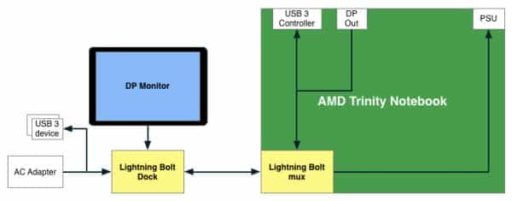Mac clone maker Psystar was dealt a significant legal blow on Friday when federal judge William Alsup ruled that it violated Apple’s copyright and the Digital Millennium Copyright Act, which has been selling Mac clones running Mac OS X.
After spending more than a year in a legal battle w ith Apple for selling Intel based systems pre-loaded with Mac OS X, the company lost its battle.
“In sum, Psystar has violated Apple’s exclusive reproduction right, distribution right, and right to create derivative works,” Alsup wrote in the ruling (PDF), which was posted by legal site Groklaw.net.
Apple filed its suit in July 2008, a few months after Psystar began selling Mac clones. The case revolved around Psystar’s contention that it could run Apple’s Mac OS X operating system on non-Apple machines. Apple denied this, stating that its Mac OS X end user license agreement allows people to install the OS on Apple computers only.
Both Apple and Psystar had a requested a summary judgment, which is a determination made without trial based on the merits of a case.
Groklaw called the ruling by “a total massacre” noting that Psystar’s first-sale defense went down in flames. Psystar’s motion for summary judgment on trademark infringement and trade dress was denied as was its illusory motion for copyright misuse.
And that’s not the end of it. There are still issues to be decided, namely Apple’s allegations of breach of contract; induced breach of contract, trademark infringement and trademark dilution. A hearing is scheduled for December 14 to review remedies.
One of Psystar’s contentions was fair use. The judge rejected this, stating the company “does not even attempt to address the four factors used to determine fair use.” Another of Psystar’s claims was “first sale” doctrine, which allows someone who buys copyrighted material to sell it. But Alsup said this doctrine applies only to legal copies, not to the “unauthorized copies” that Psystar produced.
The judge also ruled in favor of Apple’s claim that Psystar violated the Digital Millennium Copyright Act. “Psystar has violated the DMCA by circumventing Apple’s protection barrier and trafficking devices designed for circumvention,” Alsup said.
In addition, the judge rejected Psystar’s claims that Apple had misused its copyright and that Apple’s licensing agreement was unduly restrictive.
Alsup’s ruling did not include a permanent injunction against Miami-based Psystar because, he said, Apple has not requested one yet.
There are other claims Apple has made that could still go to trial, including breach of contract, trademark infringement, and trademark dilution.
Here’s a play-by-play of events in the long legal battle [From Yahoo!]:
April 2008 – The $399 Mac Clone
Psystar started selling $399 Mac clones that shipped running Mac OS X Leopard, despite the license agreement clearly stating that Apple software could not be installed or run on a non-Apple computer.
The base configuration Open Computer sported a 2.2GHz Intel Core 2 Duo Processor and 2GB memory. At the time the cheapest Apple computer, the Mac Mini shipped with a 1.83GHz Intel Core 2 Duo Processor and 1GB of memory.
Psystar’s Web site directly challenged Apple hardware by asking, “Why spend $1999 to get the least expensive Apple computer with a decent video card when you can pay less than a fourth of that for an equivalent sleek and small form-factor desktop with the same hardware.”
July 2008 – Apple Files Suit:
Apple filed suit against Psystar claiming it violates copyright and licensing agreements by selling computers with Mac OS X, starting the long legal battle between the two companies.
August 2008 – Psystar Accuses Apple of Antitrust:
Lawyers for Psystar announce the company plans to free Mac OS from the “anticompetitive tactics” of Apple and its hardware prices by filing an antitrust lawsuit against Apple.
“My goal is to provide an alternative, not to free the Mac OS,” said Rudy Pedraza, owner of Psystar. He added that he wanted to provide a cheap alternative to Apple’s hardware.
November 2008 – Apple Wins Antitrust Case:
Psystar takes a major hit when U.S. District Court Judge William Alsup says its allegations that Apple holds a monopoly over its operating system are “internally contradictory” and “circular.” Alsup dismissed the antitrust case.
Apple ensues to pour salt on Psystar’s wounds by adding a DMCA violation charge against the company saying it broke through antipiracy defenses.
February 2009 – Green Light for Psystar Countersuit:
U.S. District Court Judge William Alsup rules that Psystar can rethink its countersuit against Apple.
Instead of arguing that Apple is in violation of antitrust law, Psystar proposes that Apple is stretching copyright laws by linking its operating system to its hardware.
Alsup also hints that Psystar may become a hero of the tech industry, boosting Psystar’s moral after several months of tough battle against Apple. Alsup said if Psystar proves its case, other companies may be able to sell computers pre-installed with Mac OS X.
October 2009 – Software Runs Mac OS:
Psystar provokes Apple by starting to sell Rebel EFI on its Web site for $50. The software contains the company’s Darwin Universal Boot Loader that allows up to six operating systems to be crammed onto one hard drive, including Mac OS.
June 2009 – Suit OK’d Despite Psystar’s Chapter 11:
Florida Bankruptcy Judge Robert Back lifted a hold placed on Apple’s lawsuit against Psystar after the company filed for Chapter 11 bankruptcy protection, allowing Apple to move ahead with the case.
July 2009 – Psystar Seeks to End Bankruptcy:
Psystar aked a Miami federal bankruptcy court to dismiss its Chapter 11 case since it could not reach a payment agreement with its legal firm. Psystar owed the firm $88,000.
July 2009 – New Legal Counsel for Psystar:
Unable to reach a payment agreement with its previous legal representation, Psystar hires Houston-based Camara & Sibley as its new legal team. The firm represents plaintiffs for a flat fee instead of a success-fee basis.
August/September 2009 –Snow Leopard Suit:
Psystar sues Apple again.
This time it accuses Apple of breaking antitrust legislation by tying its new operating system, Snow Leopard, to Apple hardware. Sound familiar?
Despite a continuing legal battle with Apple and new law suit, Psystar makes the new operating system available to its customers as a $69.99 optional upgrade.
Sept 26, 2009 – Apple Seeks Dismissal:
U.S. District Court Judge William Alsup rejected Apple’s request to throw out Psystar’s suit over Snow Leopard. The judge also criticized Apple for releasing the new operating system after the discovery period of the previous case closed. He said the suspicious timing effectively took Snow Leopard out of the case.
October 2009 – Apple, Psystar Seek an End:
Psystar agrees to stop selling machines with Mac OS X Leopard, conceding to an injunction.
Lawyers f rom Apple and Psystar submit motions for summary judgment to U.S. District Court Judge William Alsup. The motion for summary judgment asked the judge to reach a decision based on the arguments that had already been made.


